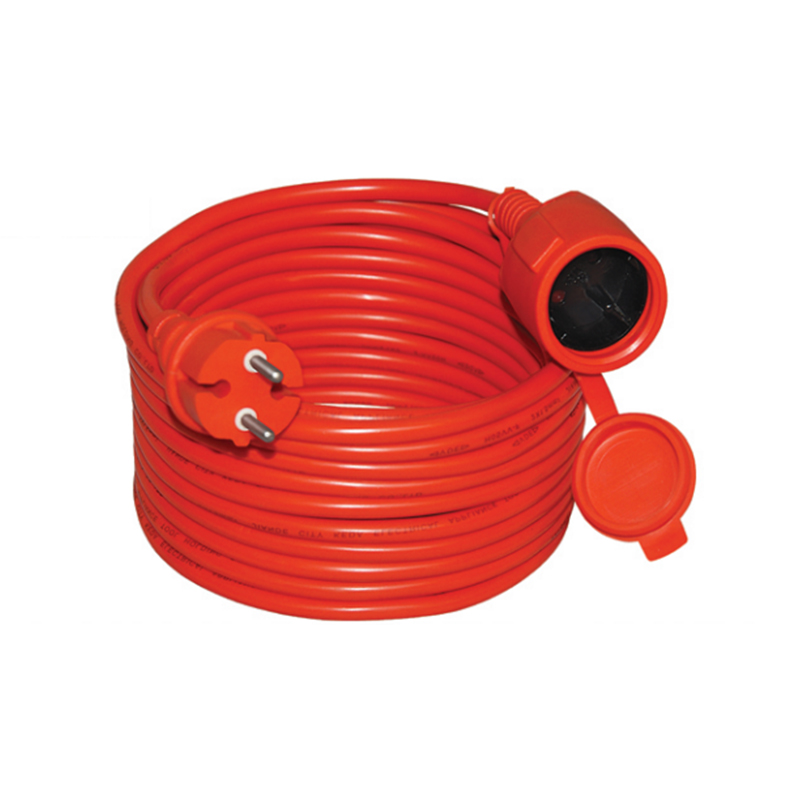What safety precautions should you pay attention to when using outdoor extension lines?
Author:admin
Date: 2024-05-09
In daily life, we often need to use extension cords to provide power to electrical appliances. When using extension cords in outdoor environments, safety issues are particularly important.
Choose the right extension cord: We want to make sure that the extension cord we choose is suitable for outdoor use. outdoor extension lines should have good waterproof, sun protection, abrasion resistance and other properties to adapt to various complex outdoor environments. When purchasing, you can choose an extension cord with a waterproof plug and insulated housing to improve its safety.
Avoid overloading: When using outdoor extension lines, be sure to avoid overloading. Each extension cord has its own wattage rating, and if the total wattage of the connected appliances exceeds this limit, it can cause the wires to overheat, short circuit, or even cause a fire. Therefore, it’s important to know the power requirements of your appliances before connecting them and make sure they don’t exceed the extension cord’s wattage rating.
Keep it dry and clean: Outdoor conditions are often humid, so it's important to keep extension cords dry and clean. Before use, make sure the extension cord does not have any damage or exposed wires that could cause moisture to enter and cause a short circuit. At the same time, regularly clean the dust and debris on the extension cord to ensure that its insulation performance is not affected.

Avoid sharp bends: When laying outdoor extension lines, avoid sharp bends. Bends at sharp angles may cause internal damage to the wire, affecting its conductive properties and safety. If you need to bend an extension cord, try to use a larger bending radius to reduce damage to the wire.
Avoid exposure to sunlight: Prolonged exposure to direct sunlight will accelerate the aging of the extension cord and reduce its service life. Therefore, when using an extension cord outdoors, you should try to avoid direct sunlight. You can choose to place it in a cool place or use a sunshade to block it.
Regular inspection and maintenance: In order to ensure the safe performance of outdoor extension lines, we need to inspect and maintain them regularly. The inspection content includes but is not limited to: whether the wire is damaged, whether the plug is loose, whether the insulation layer is intact, etc. If problems are found, they should be repaired or replaced in time.
Keep out of reach of children: We want to make sure outdoor extension lines are out of reach of children. Children are very curious and may cause electric shock if they accidentally touch a live extension cord. Therefore, we should place extension cords out of reach of children and educate them not to touch electrical appliances and wires at will.
Choose the right extension cord: We want to make sure that the extension cord we choose is suitable for outdoor use. outdoor extension lines should have good waterproof, sun protection, abrasion resistance and other properties to adapt to various complex outdoor environments. When purchasing, you can choose an extension cord with a waterproof plug and insulated housing to improve its safety.
Avoid overloading: When using outdoor extension lines, be sure to avoid overloading. Each extension cord has its own wattage rating, and if the total wattage of the connected appliances exceeds this limit, it can cause the wires to overheat, short circuit, or even cause a fire. Therefore, it’s important to know the power requirements of your appliances before connecting them and make sure they don’t exceed the extension cord’s wattage rating.
Keep it dry and clean: Outdoor conditions are often humid, so it's important to keep extension cords dry and clean. Before use, make sure the extension cord does not have any damage or exposed wires that could cause moisture to enter and cause a short circuit. At the same time, regularly clean the dust and debris on the extension cord to ensure that its insulation performance is not affected.

Avoid sharp bends: When laying outdoor extension lines, avoid sharp bends. Bends at sharp angles may cause internal damage to the wire, affecting its conductive properties and safety. If you need to bend an extension cord, try to use a larger bending radius to reduce damage to the wire.
Avoid exposure to sunlight: Prolonged exposure to direct sunlight will accelerate the aging of the extension cord and reduce its service life. Therefore, when using an extension cord outdoors, you should try to avoid direct sunlight. You can choose to place it in a cool place or use a sunshade to block it.
Regular inspection and maintenance: In order to ensure the safe performance of outdoor extension lines, we need to inspect and maintain them regularly. The inspection content includes but is not limited to: whether the wire is damaged, whether the plug is loose, whether the insulation layer is intact, etc. If problems are found, they should be repaired or replaced in time.
Keep out of reach of children: We want to make sure outdoor extension lines are out of reach of children. Children are very curious and may cause electric shock if they accidentally touch a live extension cord. Therefore, we should place extension cords out of reach of children and educate them not to touch electrical appliances and wires at will.

 English
English 中文简体
中文简体












